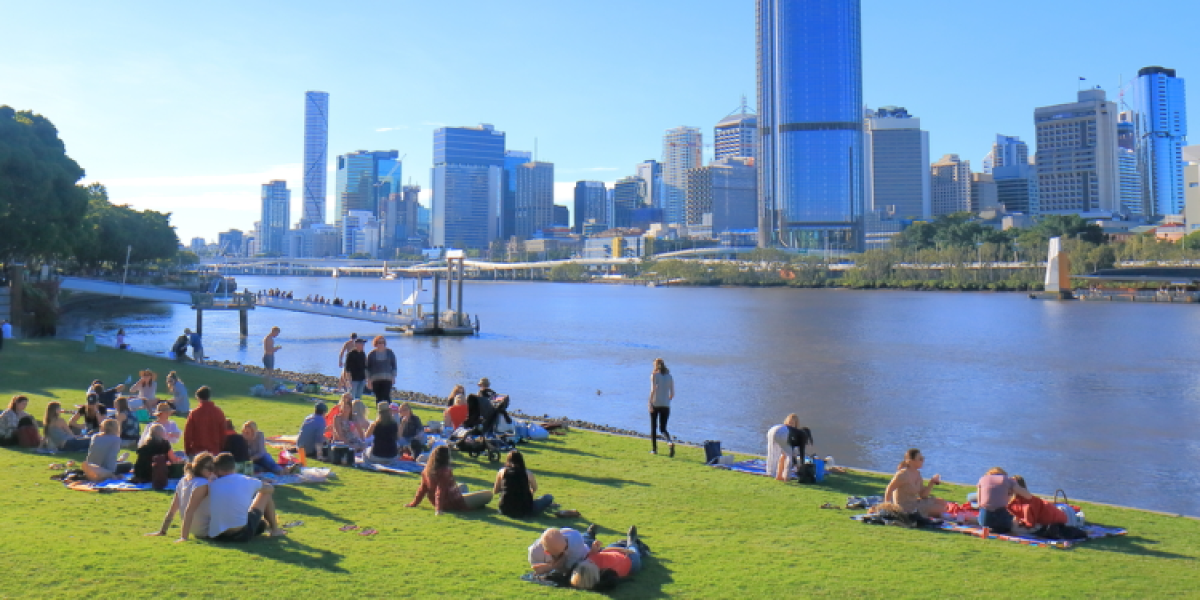
Labor shortages are compelling Australia to seek foreign talent, which is considered essential for economic growth. Meanwhile, the housing crisis is increasing against a backdrop of persistently high inflation. Here's an overview of the current situation in Australia and the implications for foreigners.
Persistent inflation
According to the Australian Bureau of Statistics, rent prices have risen sharply and consistently in 14 years. With people's incomes negatively impacted by inflation, rising rents have become a political issue and a source of tension. Annual inflation is estimated at 5.4%. In an effort to curb inflation, Michele Bullock, Governor of the Australian Central Bank, has raised the key interest rate to 4.35%, its highest level since December 2011. Although the inflationary peak has passed, the Governor points out that inflation remains high. It is estimated that less than 1% of homes are available for rent while prices are skyrocketing. The youngest and most modest members of society are the most affected by the crisis. Many residents' dreams of becoming homeowners are dwindling.
How is this related to immigration?
Australia put an end to its zero Covid policy in October 2021. When the Labour government saw the rising cases of the Delta variant, mass vaccination became the ultimate solution. On 7 February 2022, Australia finally reopened its borders. The government was counting on immigration to revive growth as Australia relies significantly on foreign workers. However, the zero Covid policy compelled the country to depend solely on its citizens during that period. "It's time to go home", advised Conservative Prime Minister Scott Morrison in April 2020. Australia's borders closed to foreigners, and those who remain felt discriminated.
Immigration to counter labor shortage
Australia has been faced with labor shortages for several years now. As the country reopened its borders, it knew that several thousands of foreign workers would be needed. Over 480,000 jobs were available in the summer of 2022, twice as many as before the onset of the health crisis. Some sectors were particularly hard hit, such as tourism, hotels and catering. Other sectors, including education, engineering, construction, IT and health, are also faced with skills shortages. Unemployment has been at an all-time low—barely 3.4% in July 2023, the lowest since the 1940s.
To counter the aftermaths of its Covid zero policy, Australia has been deploying all necessary efforts to attract foreign labor again. The foreigners who left at the start of the Covid-19 pandemic were called back, and thousands more were recruited. For the first time the Second World War, the government announced, in September 2022, a 25% increase in the skilled immigration quota to attract almost 200,000 foreign workers yearly. To attract foreign workers, companies are offering higher salaries and recruitment bonuses. The government also plans to facilitate the recognition of diplomas obtained abroad to promote economic immigration. Employers and trade unions support the government's strategy while stressing the importance of training and apprenticeships to ensure that the supply of jobs matches demand more closely.
Understanding the connection between immigration and rising rent prices
In 2022, growth hiked to +4.2% (catching up with Covid) and is estimated at 2.5% in 2023 (OECD figures). Foreigners are returning. In 2022, the Australian Bureau of Statistics noted a 29.5% increase in the number of foreign-born residents in Australia (+155,000 people). In 2023, the country expects to welcome more than 300,000 foreigners, which is 25% more than forecasted by government immigration officials. The Deputy Secretary of the Department of Immigration at the time, Abul Rizvi, acknowledged that the figures had been "underestimated"; based on pre-Covid averages when the executive was forecasting an annual increase of 235,000 people.
Will Australia's strategy resist high inflation? Should expats be banned from the country, as it was with the zero Covid policy? Canada is also faced with an unprecedented housing crisis, leading to a similar debate. Canadian Immigration Minister Marc Miller is confident that the housing crisis is not due to the presence of foreigners. To address the issue, more resources were allocated for the construction of new houses instead of reducing the number of new immigrants. To recall, it was Sean Fraser, the former Immigration Minister and current Housing Minister, who linked immigration to the housing crisis.
Australia is following the same trend. How can the country guarantee housing for the thousands of expatriates arriving in the country, and at the same time for Australians hit by inflation? The proponents of this theory view this as a purely mathematical issue. For them, it is impossible to maintain the current migration policy due to inflation and the housing crisis.
Housing crisis: Rebuilding to initiate growth
Australian economists agree that the country needs a larger number of homes. But at the moment, construction is stagnant. The rising cost of raw materials due to inflation made things worse. Builders also have to contend with influential "Not In My Back Yard" groups: communities of local residents opposed to the construction of new homes in their area. Meanwhile, "Yes In My Back Yard" groups are voicing their wish to speed up the construction and accessibility of housing. Currently, housing prices are, on average, 30% higher than before the health crisis. According to the financial institution SQM Research, rents have increased by 20% for flats and 16% for houses.
Besides, the country still faces significant labor shortages, particularly in marketing, finance, engineering, architecture, design, education, science, research, social work, health, agriculture, and transport. According to the commercial real estate firm CBRE, rents will likely keep rising (by nearly 30% by 2028), particularly in Melbourne, Sydney, Perth and Brisbane. The government is relying on the Housing Australia Future Fund, an AU$10 billion plan to build 30,000 new social and affordable housing units over the next five years.



















